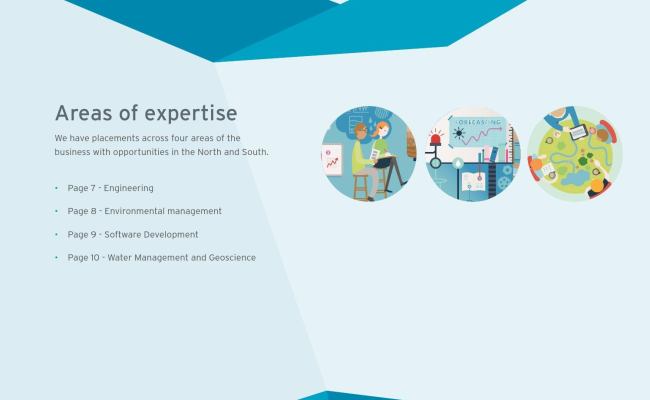
Managing human capital means understanding and measuring the skills of your people. This assessment will help your company develop a better pay incentive system. It will also allow you to align salaries and skill sets more accurately. Pay-for-skills will allow you to avoid high turnover rates and keep employees. It will also encourage employees to develop their core competencies. This will increase their satisfaction and help them stay longer in the company.
Employee engagement
Engaging employees is an essential component in managing human capital. This includes giving employees meaningful feedback as well as giving them a sense and purpose. It also involves providing them with a voice and the opportunity to voice their ideas and concerns. Managers should regularly communicate with staff to understand their concerns, and provide feedback.
Employee turnover is one of the most significant factors affecting an organization's productivity. According to a Gallup study, millennial turnover costs organizations $30.5 billion annually. Engagement makes it more likely that employees will remain in the same job and are happier with their work.
Performance management
Performance management for human capital aims to align the organization's strategy with employees' performance. It involves setting goals, objectives, and ensuring everyone follows the same path. It includes the creation and monitoring of individual performance plans, assimilation of compensation, and the determination of compensation. Performance management also helps to identify and develop high-potential employees. This approach can be used in a variety of situations, from hiring and firing to evaluating the quality of performance and identifying training needs.

The best performance system will incorporate employee engagement and performance improvement. Employees feel invested in learning and are motivated to improve their performance. A good example of this is Microsoft's gamification program for call-center agents. The objective of this program is to ensure employees have the skills, knowledge and abilities necessary to perform their duties. The performance management system should be integrated with the employee development program to ensure success.
Compensation
It is crucial that you have the right compensation to attract the best talent for your position. The key to attracting the right talent isn't only about cash. It's about how you motivate your employees. A strong compensation management system is a key tool to help companies retain and attract top talent. The right compensation mix can help increase a company’s efficiency and revenue.
Compensation management aims to ensure that the benefits and salaries offered are fair and appropriate for current workers. This involves the analysis of employee data and keeping abreast of complex benefits administration rules. It is important to pay employees on time and correctly, in addition to compensation.
Pay-for-performance
Pay-for-performance can be a great way for employees to be motivated and retained. This model gives employees the ability to raise their wages through achieving certain targets. This model can also be used to help you hire better-skilled workers. This compensation may not work for all companies but can encourage the best performers to stay.
It is vital to ensure that the CEO, HR and other departments are fully committed when implementing pay for performance. Middle management will be more inclined to support the concept if top management agrees with it.

Learning
Employers can maximize their employees' value by using learning as part human capital management. Whether you are hiring a new employee or promoting a current employee, there are many ways to make learning a part of your organization. To improve your human resource, it is essential to research industry trends and determine the needs for your staff.
Your employees can learn from you. Proper training will help employees feel confident and excited about their jobs. Employees who feel confident in their jobs will perform better.
FAQ
What is the difference in a consultant and advisor?
An advisor gives information on a topic. A consultant can offer solutions.
A consultant works directly with clients to help them achieve their goals. A consultant provides advice to clients through books and magazines, lectures, seminars, and other means.
Do I require legal advice?
Yes! Yes. Many consultants will create contracts for clients without seeking legal advice. However, this can lead to problems down the road. What happens if a client terminates the agreement after the consultant's completion deadline? What happens if the contract stipulates that the consultant must meet certain deadlines?
It's best to consult with a lawyer to avoid potential problems.
How do I choose a good consultant?
Three main factors should be considered:
-
Experience - How skilled is the consultant? Is she a beginner? Intermediate? Advanced? Expert? Is her resume a proof of her skills and knowledge?
-
Education - What did this person learn during school? Did he/she go on to further education after graduation? Do we see any evidence of this learning in the way he/she writes?
-
Personality - How do we feel about this person? Would you want this person to work for you?
-
These questions can help you determine whether the consultant is right for your needs. If you do not have the answer, it is worth interviewing the candidate to find out more.
Statistics
- My 10 years of experience and 6-step program have helped over 20 clients boost their sales by an average of 33% in 6 months. (consultingsuccess.com)
- WHY choose me: Why your ideal client should choose you (ex: 10 years of experience and 6-week program has helped over 20 clients boost their sales by an average of 33% in 6 months). (consultingsuccess.com)
- According to IBISWorld, revenues in the consulting industry will exceed $261 billion in 2020. (nerdwallet.com)
- 67% of consultants start their consulting businesses after quitting their jobs, while 33% start while they're still at their jobs. (consultingsuccess.com)
- So, if you help your clients increase their sales by 33%, then use a word like “revolution” instead of “increase.” (consultingsuccess.com)
External Links
How To
How can I find a good consultant for my business?
It is important to understand what you are looking for in a consultant before you can find one. Do you want them to help you improve your website's performance? Are you looking for them to help optimize your website to rank higher on search engines? Or perhaps you just want someone who can tell if there are any issues with your current hosting provider. When you are clear about the services you require, you can start to look at other companies. Although there are many consultants who claim to offer these services, very few of them can actually provide the required results. How do I choose one? Here are some tips to help you choose a consultant.
-
Get referrals. Referring to other consultants is the best way of choosing a consultant. You don't want to hire someone you've never heard of before because you'll likely pay too much. You also don't want someone with a poor reputation to work for you. If you have the good fortune to get referrals from trusted people, great! Even if you don’t have any referrals, you can still look online for reviews. Find testimonials and case study examples from customers who have used your product.
-
Ask around. Many people are not aware of the benefits of hiring a consultant. Many people believe that they are doing well and don't need any changes. However, this is usually untrue. Even if you're getting great results right now, chances are that you haven't been keeping up with new trends or technologies. And if you're relying on outdated methods, you'll miss out on opportunities to grow your business. Ask around to find a qualified consultant.
-
You should verify their qualifications. It doesn't matter if you are looking for a consultant to help you build a blog or launch a multimillion-dollar eCommerce site, you need to make sure they have the right skills to manage your project. You need to ensure that the person you hire is qualified to do the job and has sufficient knowledge in the subject.
-
Find out which projects they are best at. You might think that everyone can handle all projects, but this is false. Some areas require specific education or training. You won't hire a Drupal developer if you need to build a WordPress template. The same applies to programming languages, graphic design and other areas. Ask the designer what kind of projects they have worked on in the past.
-
Find out what their charges are. As we mentioned, it is important to know what they charge. You also don’t want to spend too little. There are many types of consultants. There are some that charge an hourly fee, while others may bill per job. You will save money if you know exactly what you're going to pay upfront.
-
What do they offer? Are they providing free consultations? Can they provide advice on how to setup your own system? Do they promise that your site will rank higher once you have worked with them? You can cancel your consultation at any time without penalty if you are not satisfied with what you heard.
-
Find out if the company offers discounts for several months or years. Many consultants offer discounted pricing over extended periods. Even though you do not necessarily have to commit to a whole year of service, you might still be able to benefit from any specials they offer.